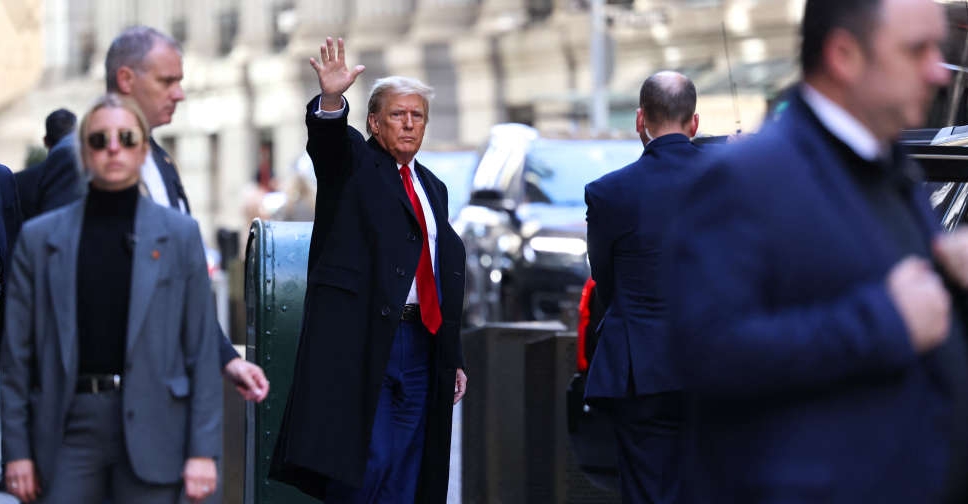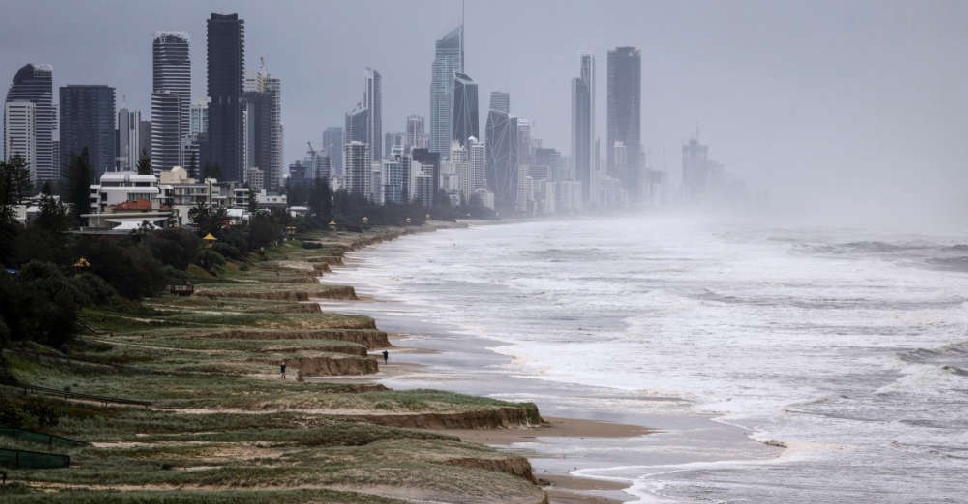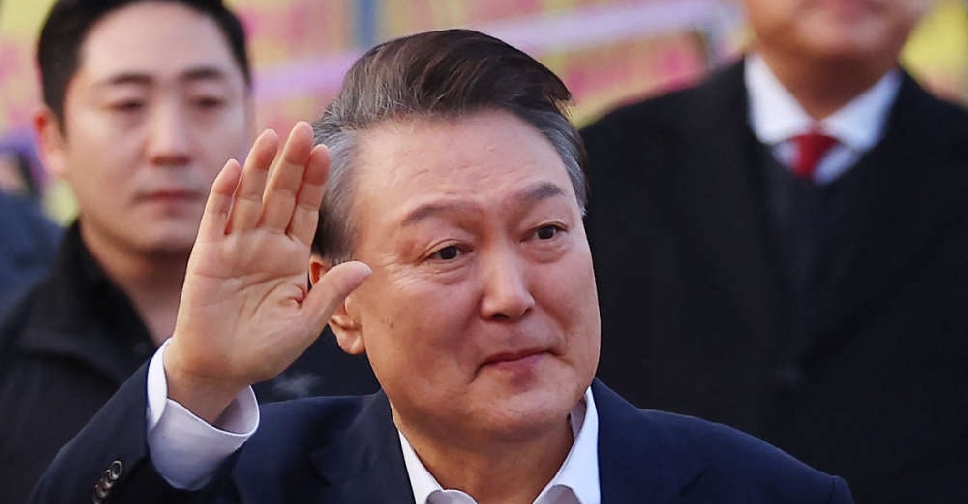
A New York judge, on Monday, set April 15 as the trial date for former US President Donald Trump's criminal hush-money case.
In the case, Trump stands accused of criminally altering business records to cover up a $130,000 payment to adult film star Stormy Daniels shortly before the 2016 election.
Trump's lawyers say the payment was meant to spare himself and his family embarrassment, not to help him win the election.
After Justice Juan Merchan set the April date, Trump boasted the case could bolster his campaign, telling reporters at one of his nearby properties, "It can also make me more popular because the people know it's a scam."
As it stands, only the New York case is guaranteed to go to trial before November.
Trump also faces two criminal trials accusing him of trying to subvert his 2020 election loss to Biden, and another that accuses him of mishandling classified information after he left the White House in 2021.
He has pleaded not guilty to all charges against him.
All of those cases involve weightier allegations than the New York case, which stems from attempts to cover up an alleged extra-marital affair.
Voters, though, might not know before November whether Trump is guilty of subverting democracy or violating national security by storing secrets in a bathroom.
The federal election-subversion case is on hold pending Supreme Court review, while another election-subversion case in Georgia was delayed for months due to questions about whether the prosecutor's romantic relationship with another lawyer posed a conflict of interest. The federal documents case also has been delayed by Trump's legal challenges.
In the New York hush money case, Trump's lawyers won a few extra weeks to sort through evidence provided to the state by federal prosecutors who opted not to file charges after investigating Trump's payment to Daniels.
But the judge denied their request for a further delay and set a trial date of April 15. That means the case could wrap up by the end of May.
No other former US president, let alone one running for election again, has ever faced criminal charges. But Republican voters rallied behind Trump when the hush-money charges were filed a year ago, and opinion polls show him essentially tied with Biden at this point.
Strategists say, however, that could change.
"Republican voters don't seem to be fazed by his legal problems, but independents and unaffiliated voters may be impacted by the proceedings and ultimately whether or not there’s a conviction," said Jeanette Hoffman, a Republican consultant.
Trump's legal troubles also threaten his pocketbook, as he has racked up more than half a billion dollars in judgments, on top of mounting lawyers' fees.
Trump faced a Monday deadline to pay a $454 million civil-fraud judgment, which he said he could not pay. New York authorities were poised to begin seizing his assets.
But a New York appeals court gave him 10 days to post a $175 million bond while he pursues an appeal. Trump said he would quickly come up with that money.
The decision makes it less likely that Trump will see trophy properties seized by authorities, or have to sell them off quickly for what he has called "fire sale" prices.


 Thousands of Australians without power as cyclone Alfred hits
Thousands of Australians without power as cyclone Alfred hits
 Israeli airstrike kills two in southern Gaza
Israeli airstrike kills two in southern Gaza
 12 people injured in Toronto pub shooting
12 people injured in Toronto pub shooting
 Cyclone Alfred downgraded as millions stay indoors
Cyclone Alfred downgraded as millions stay indoors
 South Korea's President Yoon free, trials continue
South Korea's President Yoon free, trials continue







